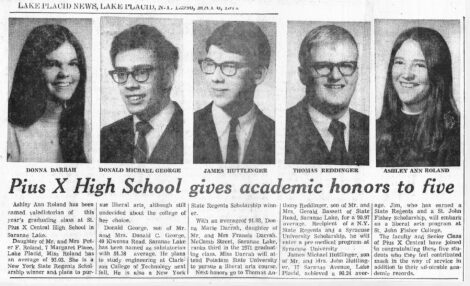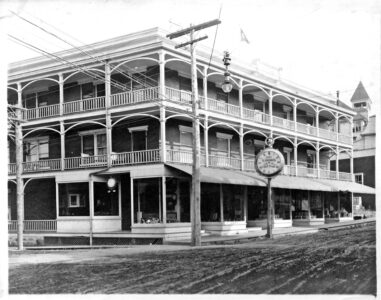What happened to civil discourse?
When I was at the garage the other day picking up my family’s car, the mechanic and I started making small talk. When I told him that my favorite car is the 1932 Detroit Electric, he started explaining his reasons for liking gas cars more than electric cars. Then I started explaining my reasons for liking electric cars more than gas cars. After a few back-and-forths, he said, “I am being hounded by a 15-year-old.” I was taken aback. As far as I could tell, we were just taking turns sharing our views on cars.
This is one example of a conversation I’ve had that starts out with me sharing my views but ends with both of us trying to convince each other that our beliefs are right. I think these conversations tend to end with one person feeling shamed in some way. I often feel like shame tends to give rise to defensiveness. But that is the opposite of my goal in having these conversations. My goal is to find otherwise hidden connections that I have with a person and to empathize with people by learning new perspectives on a topic that interests me. Shame and defensiveness prevent that connection from taking place.
I’m looking for spaces where I can engage in civil discourse with people who have different views than I do. Civil discourse refers to conversations between people who may have differing opinions but express them while being polite, keeping an open mind and agreeing to disagree. It’s important because it allows exploration of different ideas and helps with understanding different points of view, which I think is necessary to find compromises and resolve issues. Having more spaces for civil discourse could really help build our communities and make them stronger.
I would like to see more spaces where people can meet and talk to each other about topics where they might disagree and still feel connected to each other and themselves. I use the word “spaces” broadly to refer not only to physical spaces, but also virtual spaces and even topical spaces — spaces that are defined by the conversations taking place rather than the places themselves. What these spaces have in common is that they draw people with different points of view together to find common ground, making otherwise unlikely friendships possible.
Physical spaces are the easiest for me to imagine, but they are still defined by the people who inhabit them. I recently read an article in the Washington Post called “A dying man said he found the key to happiness. Science backs him up,” by Dana Milbank, in which a man in a Virginia coffee shop would act as a casual yet very effective mediator in polarized conversations. People who held different political and religious beliefs talked to each other about their different points of view through civil discourse, and shared local gossip with each other as they got coffee.
One self-described “raging-liberal” who would not have expected to be hanging out with Trump supporters said she found in them “that elemental sense of belonging. It sounds so corny, but there is just so much love here.” It taught her “that people are a lot more than their political inclination.” I think one of the secrets to why she could come to this understanding was because no one was trying to tell anyone that their beliefs were wrong. Everyone was trying to see other people’s perspectives while having a chance to share their own.
One place where that happens around here is the Adirondack Center for Writing. ACW offers many events geared toward prompting open conversations and structures the events in a way that makes sure everyone stays supportive and friendly. They even have teen events that help people my age get together, like the High School Writing Retreat in late October, and the Story Publishing Camp in the summer. At these events, people work hard to listen to each other and understand those around them.
Civil discourse can also take place in virtual spaces. Many teens hang out in virtual spaces, like those created by social media. A lot of polarizing views are brought up on social media, but from what I have observed, they are brought up to shock and get attention, not to engage in civil discourse.
For example, a few years ago, a local university student posted a racist comment on Snapchat to get their friends’ attention. It hurt students’ feelings at a local Adirondack high school. Two of these students incorporated this incident into their senior legacy project about race, stereotypes and identity, which they presented to their local community in the school auditorium. The post was made in a virtual space but the mediated discussion about its effects happened in a physical space. For me, this example highlights that civil discourse in virtual spaces can benefit from the support of conversations that take place in physical spaces.
Topical spaces are more difficult to define until after they form around some topic that brings people together. One local example of this has been environmental conservation of the Adirondack Park. According to an article published in December 2023 in Adirondack Life Magazine by Brian Mann called “Finding common ground in the Adirondacks,” The Common Ground Alliance did a lot of work to bring people who wanted to develop the land and people who wanted to conserve the land into conversation with each other. Sometimes tensions flare up, but people are still talking. Caring for the Adirondack Park is a topic that can bring us all together, even though we may not agree on the best way to care for it. So long as people are respectful of each other and open to new ideas, the conversations can keep going, whether at a special event or in a coffee shop.
I’m not the only one in need of these spaces, whether they are physical, virtual or topical. I know many teens who feel isolated even though they have plenty of people around them. I don’t hear many teens talk about the need to connect with people who don’t share their point of view. I believe civil discourse holds the potential of allowing ourselves to connect across differences and make new friends. When done well, civil discourse allows people to face their fears of being rejected for their beliefs, and find acceptance and connection instead.
Whether in physical, virtual or topical spaces, I hope to have more conversations with people where we share different points of view and leave the conversation with new perspectives to ponder. By learning other views, I am not losing my own — I am gaining a perspective I would not have otherwise had.
——
Evan is a 15-year-old from Westport who enjoys exploring the Adirondack Park and connecting with people through open communication and empathy.
——
The Adirondack Center for Writing would love to host a space for civil discourse. Please join our mailing list at adirondackcenterforwriting.org/contact or follow us on Instagram @adkctr4writing for more information coming soon.


